Message from Faculty Members
ARII Ken [Professor]
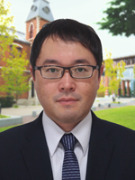
Research Topic
Nature Preservation and Environmental Conservation
Message
Finding out that you have a common friend with a person whom you have just met, such an episode may make you aware that the world is small.
Perhaps you have come across the idea of “six degrees of separation”. In the late 1960s, an American social scientist Stanley Milgram conducted an experiment that would give rise to the concept that any two random people on this planet can be connected through a chain of acquaintances that has no more than five intermediaries. Milgram’s experiment was conducted in the U.S. and therefore its conclusion should not be expanded to the connectedness of people in the world, however, rapid developments in science and technology since the 1960s (e.g., internet, transportation) has indeed made the world a smaller place.
As you further your career in this
“smaller world”, you are bound to encounter a great diversity of people
with variety of ideas and opinions. Value your immediate surroundings,
but reach out to this vast but connected world. Broaden your knowledge
and experience, and prepare yourselves for the exciting future that
awaits you!
Robert William ASPINALL [Professor]
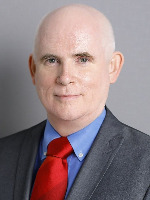
Research Topic
The Political and Educational Systems of Japan and the UK
Message
I am originally from Manchester, England. I hold a doctorate in politics from the University of Oxford, as well as a master’s degree in politics from the University of Manchester and a master’s degree in Japanese Studies from Essex University, UK.I also have a joint honours degree in Modern History and Politics from Reading University and Postgraduate Certificate in Education in History from Kingston University, London
I have a long experience teaching classes and seminars in Japanese politics, the Japanese education system and inter-cultural communication. Before coming to Doshisha I taught at Nagoya University and Shiga University, Japan.
I carry out research into the politics of education in Japan and the UK.One of the projects I am currently engaged in is a comparative study of secondary education in Japan and England. This is an area where I am able to make use of my experience as a secondary school classroom teacher in both countries as well as my academic training in social science methodology and theory. I am also carrying out research into international education policy at the secondary and tertiary levels.
LI Changbo [Professor]
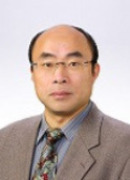
Research Topic
Linguistics, History of Japanese Language, Historical Comparative Stylistics
Message
“Invaluable encounters in Kyoto”
Hello everyone. My name is Li Changbo. I am teaching Japanese to international students at the Center for Global Education and Japanese Studies.
Since I first came to Kyoto in the autumn of 1989, I have been based in Kyoto all these years for both study and work. Before I knew it Kyoto has become my hometown, and I found myself unable to live away from the city. I have visited numerous shrines, temples and historic sites, but I still sometimes find something new as I walk along the streets, and the sight of the Kamo River always makes me feel relaxed.
Kyoto is a city of natural beauty and cultural richness. The Kamo River flows very close to Doshisha University and its appearance changes from season to season, no, from moment to moment, enchanting everyone who walks by. Kyoto attracts many international students who come here to appreciate the traditional cultures of Japan and the beauty of the country’s nature. It is a perfect place both for experiencing the profundity of Japanese culture and for multicultural communication. And most of all, Kyoto offers you a relaxed study environment.Language is a wonderful bridge that connects people, and a key to unlock the door to a new world. Come join us at Doshisha University and open the door to the new world and invaluable encounters through studying Japanese.
SAIGO Hideki [Professor]
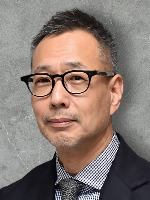
Research Topic
Teaching Japanese as a Foreign Language , Japanese Linguistics
Message
“Here Begins Your New Story”
Hello, everyone!
I’m Saigo from Kitakyushu, the hometown of TOTO, the company famous for its Washlet toilets. I’ve been teaching Japanese since before most of you reading this were even born!
Throughout my career, I’ve had the opportunity to teach in several places, including Nagoya, where the World Cosplay Summit is held every year; Durham in the UK, home to a cathedral used as a filming location for Harry Potter; and Osaka, known for Universal Studios Japan. And now, I am here at Doshisha University in Kyoto - a city that feels like a living history theme park.
Kyoto, where Doshisha University is located, holds a special place in my heart, as it’s where I spent my own student years. It’s an ideal environment for student life. While Kyoto is globally renowned for its deep history, it is also home to many creative and free-thinking individuals. This unique combination gives Kyoto a one-of-a-kind charm - or rather, a kind of magic - you won’t find anywhere else in Japan. I hope you’ll experience this magic through your campus life at Doshisha University. And as you encounter this magic, you may also discover a new side of yourself that you never knew existed.
The faculty and staff of the Center for Global Education and Japanese Studies are here to fully support your Japanese language learning - so feel at ease and enjoy the journey!
I look forward to seeing you on campus!
SUH Yoon Soon [Professor]
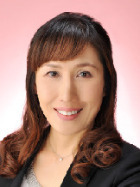
Research Topic
Japanese Linguistics, Sociolinguistics, Comparative Study of Japanese and Korean Languages
Message
“Build a foundation for your future at Doshisha University!”
Hello everyone, I am Suh Yoon Soon.
Kyoto, where Doshisha University is located, is a fascinating and unique city where the past and the present coexist. At the same time with preserving buildings that are more than thousand years old and various historic legacies in every corner, the city also accommodates such cutting-edge world-class companies as Nintendo, Kyocera and Wacoal. Doshisha University has been a part of the history of the city. I believe that Kyoto in its present form exists thanks to its past, a strong foundation of its long history and traditions. Such thick layers of history and traditions are the driving force that creates new ideas and possibilities, and connects the present and the future.
Have you ever pictured how you will be like in the future? I guess you have various images of your future job, home and family. To realize those images, you have to form a solid foundation for your future, which is the present and also the past if you look back on it from the future.
I sincerely hope that you will make the most of your time in Kyoto and Doshisha University to experience the dynamism of the past, present and future, draw a clear vision of your ideal self and create a bright future.
I will do my best to support your studies at Doshisha University and help you build a solid foundation for your future. I am looking forward to meeting you in my class.
DOI-BENSON Anya [Associate Professor]
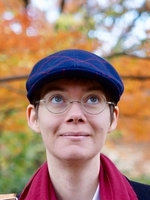
Research Topic
Contemporary Japanese media and children's media cultures
Message
It’s not uncommon for people to express shock or even fear upon encountering a different culture. But the vast majority of intercultural encounters elicit no reaction, for they are simply the shape of our everyday lives. We encounter other cultures every time we speak to our friends, scroll through the news, pass by a Starbucks or go to the cinema.
Our lives are steeped in the perspectives of those we never thought to include in our imaginings. We can’t choose to avoid intercultural encounters, but we can choose the opposite: to learn to see and admire the diversity that colours even the most mundane of activities.
I research children’s media franchises and their constructions of space. Through this I have learnt that recognition of the unfamiliar can be a tool used to construct something new. Our desire to seek out the spaces of fancy is what media franchises rely on to build themed shops and parks for commercial purposes. But it is also one way we all learn: by imagining something unfamiliar, and then seeking out — or better yet, building — the environment in which it can be encountered.
MATSUMOTO Shusuke [Associate Professor]
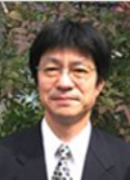
Research Topic
Japanese Linguistics, Japanese Language Education
Message
“We are waiting for you in Kyoto”
Doshisha University is located near the center of Kyoto city, and within walking distance from its campus are various facilities that have contributed to creation and preservation of the culture of Kyoto throughout its long history, such as Kyoto Imperial Palace and many temples and shrines, other historic heritages, studios of traditional crafts, head families of tea and flower arrangement schools, and long-established stores of Japanese sweets. I have no doubt that Doshisha University is a perfect environment for international students to gain firsthand experience and deep understanding of the Japanese language and culture.
The faculty and staff at Doshisha University are all fully committed to helping international students realize their goals and dreams. Since its establishment in 1999, the Center has accommodated an increasing number of international students every year, whose backgrounds have become increasingly diverse as well. Their pathways after completing our program have also diversified, with some of them proceeding to undergraduate and graduate studies, while others find a job in Japan, or return to their home country for further studies, or study abroad in another country. But what has remained the core of our teaching method all these years is our commitment to each one of our students and our enthusiasm to give them relevant advice and support according to their individual needs. We would like each one of our international students to be truly satisfied with their life at Doshisha, and to make the most of their experience here for their promising future. These are our wishes shared by all the faculty and staff members of the Center.
Please feel free to visit us at Doshisha University. We are looking forward to meeting you.
MIKAMI Sota [Assistant Professor]
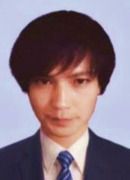
Research Topic
The “Outer Lands” Japanese Literture
Message
“As another alma mater”
Doshisha University is dedicated to international student education with internationalism as its educational philosophy. The Center for Global Education and Japanese Studies (CGJ) cultivates globally-minded human resources through the education and admission of international students.
Students can opt for a curriculum in "Japanese Language Course" "Lecture Courses in Japanese Studies" "Lecture Courses in International Studies" based on their objectives. Please shape your future, whether it involves certification, an academic path, or a career.
All of our teachers and staff have extensive experience in educating foreign students. We prioritize conscience as we care for young people from all corners of the world. "Loving people seems to have a narrower perspective than loving a country, but if you love people all over the world, not just people in one country, your perspective is rather broad."(Niijima Jō) These words are our Belief.
We hope that Doshisha University becomes another cherished alma mater for you. I eagerly anticipate meeting all of you in Kyoto, the city of universities and students.
YOSHIKAWA Kanako [Assistant Professor]
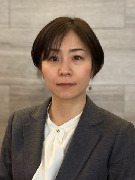
Research Topic
Business Japanese, Career Support
Message
“Cherish once-in-a-lifetime encounter”
Have you ever heard the phrase "Ichigo Ichie"?“Ichigo” means a lifetime, and “Ichie” means a one-time encounter.In other words, it is a phrase that teaches us to cherish any encounter, as it may happen only once in our lifetime.However, there is actually a deeper meaning. Not only encounters, but all opportunities could happen only once.Therefore, I am telling you to always cherish the present moment.
Every day you spend at Doshisha University, you will meet new friends and classmates.You will also have opportunities to experience part-time jobs, volunteer work, and club activities, and there are many places to visit in Kyoto, a city with a long history and traditional townscapes. All of these will be wonderful encounters and opportunities if you approach them with an open mind.
Deciding to study abroad requires great courage, and you may feel anxious.Nevertheless, if you have decided to study in Japan, we, the faculty and staff of the Center for Global Education and Japanese Studies, will be there for you and do our best to support you, so that your study and experience in Japan will be meaningful.We are looking forward to meeting you here in Kyoto.